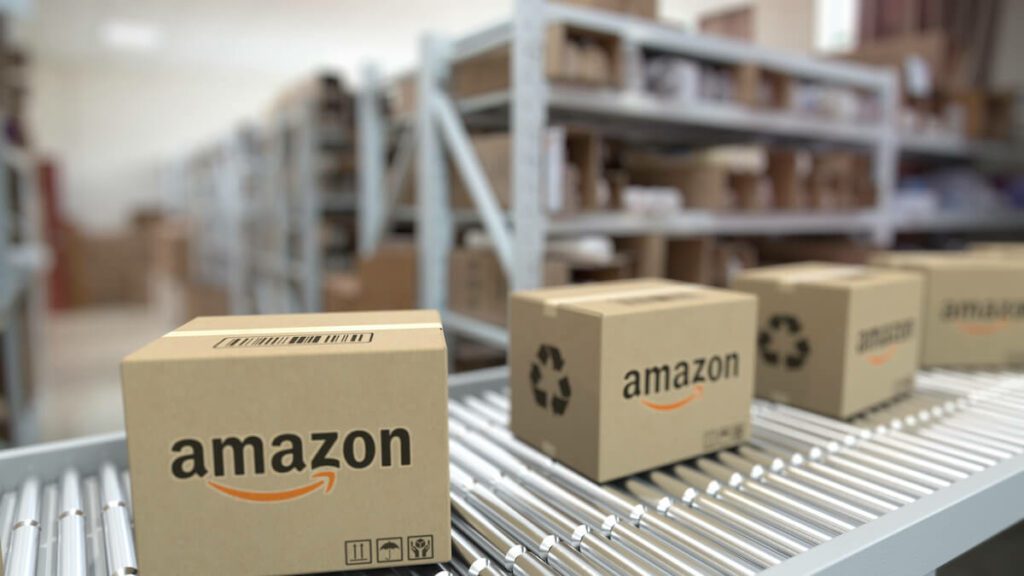Do you know how much counterfeit sales are worth every single year?
Over $500 billion.
Amazon Project Zero is a proactive program aimed at eliminating counterfeit products on the Amazon marketplace.
This article will look at how Project Zero aims to protect both brands and customers, boost trust, and create opportunities for sellers to take back control from counterfeiters fraudulently selling fake products.
What is Amazon Project Zero?
Amazon Project Zero is a program launched by Amazon in 2019 to combat counterfeit products on Amazon. The goal of the program is to drive the number of counterfeit products on Amazon marketplaces down to zero by preventing counterfeit listings from ever appearing, rather than just reacting to them once they’re live.
By doing so, Amazon aims to create a marketplace where consumers can shop with confidence, and brands can protect their products and reputations.
And this applies to every marketplace in which you operate. Once your brand is enrolled in Project Zero in one country, it’ll be automatically enrolled in other countries where you have a registered trademark enrolled in Brand Registry.

How Amazon Project Zero Fights Counterfeiters
Project Zero employs machine learning technology to continually scan Amazon marketplaces for counterfeit listings and swiftly remove them. The program also provides tools for brands to report and remove counterfeit listings themselves, empowering brands to take an active role in preventing counterfeit sales.
Project Zero has a three-pronged approach:
Automated Protections
Automation is a key component of Project Zero. ML algorithms identify discrepancies in listings, flagging potential counterfeits for removal by continuously scanning the marketplaces.
Once enrolled, you’ll need to provide Amazon with your trademarks, logos, and other data about your intellectual property, and the technology scans over 5 billion listings per day to ensure that only authentic products make it to the marketplace.
Self-Service Removal Tool
The self-service counterfeit removal tool allows you to instantly remove counterfeit listings without waiting for Amazon’s intervention, giving you more control over your brand’s integrity on the platform.
This not only streamlines the process but also significantly reduces the time between detection and removal of counterfeit listings. All of the data from the self-service tool feeds directly back into the automated protections to better catch counterfeits in the future.
Product Serialization
The third prong of proactive counterfeit detection is the serialization program. Amazon provides unique codes that brands add to each unit during production. Every time a product using the service is purchased on Amazon, the codes are used to verify the authenticity of the product before shipping.
This helps to track and authenticate products across the supply chain, further deterring counterfeiters and preventing any counterfeit goods from shipping to customers.

Why Should Brands Join Project Zero?
Protecting the integrity of your brand on – and off – Amazon is crucial, and any program that allows you to do that should be a consideration for a savvy Amazon seller.
Counterfeit products not only dilute your brand’s value but can also lead to negative customer experiences and reviews that reflect badly on your brand.
By joining Project Zero, you’re taking a proactive step towards safeguarding your brand’s reputation, ensuring that customers receive genuine products, and reducing the risk of legal issues related to intellectual property infringement.
Stay Covered: Product Liability Protection for Savvy Amazon Sellers
No obligation quote.
Policies can be canceled at any time, with 30 days’ notice.
The Drawbacks of Project Zero
While Project Zero clearly offers some attractive benefits, there are a few caveats.
- It’s only available to accounts with Brand Registry and registered trademarks
- Product serialization adds an extra step into your manufacturing process – a cost that you’ll have to absorb
- It relies heavily on brand input and you’ll need to invest some time and effort into the program to reap its benefits
However, our opinion is that the upside of Project Zero for those who are eligible far outweighs the potential downside.
So, how do you join?
How Brands Can Enroll in Project Zero
Enrolling in Amazon Project Zero is a straightforward process as long as you meet the eligibility criteria and you can apply through Amazon Brand Registry.
Eligibility Criteria for Project Zero
To be eligible for Project Zero, you have to meet three requirements:
- You must have a Brand Registry account
- be a brand owner with a registered trademark in one of Amazon’s operating countries
- You must have submitted reports of potential infringements through the Report a Violation tool with an acceptance rate of at least 90% over the last six months
Currently, Project Zero is available to eligible brands in 20 countries:
- The United States
- United Kingdom
- France
- Italy
- Spain
- Germany
- Japan
- India
- Mexico
- Canada
- Australia
- Brazil
- Egypt
- The United Arab Emirates
- Turkey
- Singapore
- Poland
- Saudi Arabia
- Sweden
- The Netherlands
The cost of Amazon’s project zero program
Joining Project Zero is free and you’ll get access to the automated protections and self-service removal tool. However, the optional product serialization feature incurs a fee, with the costs for serialization varying based on product volume and storage.
Don’t forget the time cost involved in applying and that once accepted, you’ll need to learn to use the tools effectively to reap the most benefit from the program.
Project Zero vs. Transparency
While both Amazon Project Zero and Amazon Transparency are initiatives aimed at combating counterfeit products, the way they do this is somewhat different.
Project Zero is primarily proactive, focusing on preventing counterfeit listings from ever appearing on Amazon in the first place.
The Transparency program is more reactive, providing a tool for customer assurance. Registered products can’t be sold or shipped without a valid Transparency code so that customers to verify the authenticity of their purchases by scanning the code using the Amazon or Transparency app.
Both initiatives complement each other, providing a comprehensive approach to combating counterfeits on Amazon and giving customers confidence when they’re purchasing branded products.
Both programs are powerful tools to help brands combat counterfeits that affect their reputation, customer satisfaction, and loyalty.
What to read next?
- The Complete Guide to Amazon Brand Registry
- Amazon Global Selling vs. NARF: Which One Should You Choose?
Stay Covered: Product Liability Protection for Savvy Amazon Sellers
No obligation quote.
Policies can be canceled at any time, with 30 days’ notice.




0 Comments